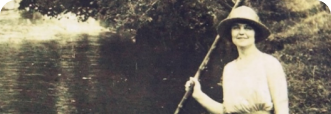
What is Dementia?
Dementia is a general term for a decline in mental ability severe enough to interfere with daily life. It primarily affects memory, thinking, problem-solving, language, and may also impact a person's control over their emotions. Alzheimer's disease accounts for 60-80% of cases, making it the most common type of dementia
Jude Rhodes is a Registered General Adult Nurse with extensive experience working with families living with dementia.
“ I research the family history based on the individual’s earlier life where memories are richer and using photographs from when the individual was younger allows them to feel valued, comforted and up-lifted.”
How Genealogy can help with Dementia?
Renew their sense of identity and belonging, provide comfort amidst the challenges posed by dementia.
Revives Personal Identity
Researching and presenting family history helps reinforce the individual’s sense of self and personal identity, which dementia can often obscure or erase
Facilitates Emotional Connections
Familiar images and stories from a patient’s past can evoke emotions and memories, providing comfort and reducing feelings of isolation or confusion. This helps to have meaningful conversations with your loved one.
Promotes Cognitive Engagement
Engaging with one's own history can be a cognitive exercise for dementia patients, helping to maintain mental function by recalling names, places, and events.
“When working with two sisters, one of whom was living with advanced dementia, the memory triggers from the book were enlightening and the sisters remembered a time in their younger lives which resulted in them laughing, chattering and giggling – it was a privilege to witness their joy in an otherwise difficult time in their lives.”
Research for those living with Dementia
Using family history to engage individuals with dementia or memory loss is an effective way to stimulate conversations and evoke cherished memories. Jude does this in a few ways:

Memory Lane Mapping
This step involves deep research into the individual’s formative years to uncover resonant life details that may still hold emotional significance.

Visual Memory Anchors
Original photography from the individual's younger days are employed to stimulate recognition and evoke emotional responses. These visual cues are powerful tools for memory recall.
It is not just photographs showing people of the individual's earlier life but objects and places help to recall the memories.

Legacy Books Creation
Before getting married Marjorie’s mother, Dorothy, was helping at home, at Ingle Avenue, Morley to look after her disabled mother and run the household, before that she had been a weaver at Prospect Mills, Victoria Road which was at the bottom of Ingle Avenue.
When Marjorie was young she remembers her grandparents living at Ingle Avenue in Morley; the houses were brick built and semi-detached with front gardens.

